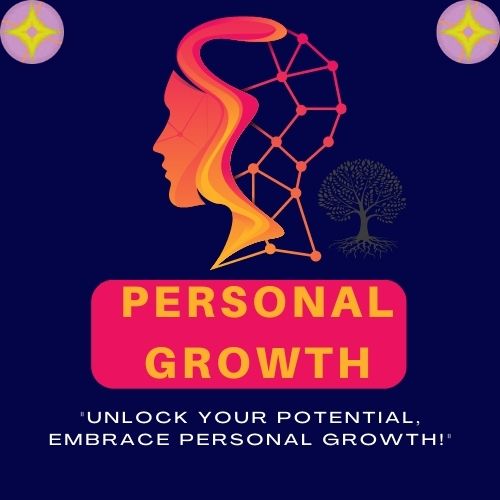4 Essential Keys to Effective Communication in Love, Life, Work—Anywhere!
Effective communication is necessary for all of us because it serves as the cornerstone of human interaction and understanding. In every aspect of life, be it personal relationships, work environments, or societal interactions, effective communication is the key to building connections, resolving conflicts, and fostering collaboration. It enables us to convey our thoughts, feelings, and ideas in a clear and concise manner, ensuring that our messages are understood by others.
Moreover, effective communication involves active listening, allowing us to comprehend the perspectives and needs of those around us. This, in turn, promotes empathy, trust, and mutual respect. Whether in expressing our desires, negotiating solutions, or simply navigating the complexities of daily life, effective communication is the linchpin that facilitates meaningful connections and harmonious relationships. It is an essential skill that empowers individuals to navigate the diverse and interconnected world we live in.
Effective communication is crucial in all aspects of life, whether it's in your personal relationships, professional endeavors, or interactions with others in any context.
Here are four essential keys to help you communicate effectively:
1. Active Listening:
One of the most important aspects of effective communication is being an active listener. This means giving your full attention to the person speaking, without interrupting or forming judgments prematurely. Show that you're listening by nodding, making eye contact, and providing verbal cues like "I see," "I understand," or asking clarifying questions. Active listening helps build trust and ensures that you truly understand the other person's perspective.
2. Clarity and Conciseness:
Clear and concise communication is essential to avoid misunderstandings. When expressing your thoughts or ideas, be specific and to the point. Use simple language and avoid jargon or overly complex explanations. Ensure that your message is well-structured and organized, making it easier for others to follow and comprehend.
3. Empathy and Understanding:
Empathy is the ability to understand and share the feelings of another person. In both personal and professional settings, it's crucial to put yourself in the other person's shoes. Try to understand their emotions, perspectives, and concerns. Validate their feelings and show empathy by saying things like, "I can imagine how that might have made you feel," or "I understand why you might be worried about this."
4. Non-Verbal Communication:
Communication is not just about words; non-verbal cues play a significant role as well. Pay attention to your body language, facial expressions, and tone of voice. Ensure that your non-verbal signals align with your words to avoid sending mixed messages. Likewise, be attentive to the non-verbal cues of the person you're communicating with, as they can reveal unspoken thoughts and emotions.
The Importance of communication skills in personal growth
Communication skills are crucial for personal growth as they empower individuals to express themselves effectively, understand others, and build meaningful relationships. Strong communication fosters self-confidence, clarity of thought, and the ability to articulate one's ideas and emotions. It enables individuals to navigate challenges, resolve conflicts, and seek opportunities for growth and development.
Moreover, effective communication contributes to improved interpersonal relationships, aiding in the development of a supportive network that encourages personal and emotional well-being. Ultimately, honing communication skills is an integral part of personal growth, enabling individuals to thrive in both their personal and professional lives.
You will learn these 4 Key Skills:
- Empathic Awareness Skill – recognizing your inherent value and dignity as a person as well as the inherent value and dignity of the person you are communicating with. This respectful perspective is the foundation for good and effective communication.
- Empathic Listening Skill – often referred to as Active Listening, Reflective Listening, Power Listening, and Intentional Listening. How to listen in a way that you accurately understand what the other person is saying and meaning such that they feel truly heard and understood by you, especially on an emotional topic.
- Empathic Speaking Skill – how to say what you want to say in a way that accurately expresses your thoughts and feelings, and at the same time increases the likelihood that the other person will be open to hear and receive it, whether it’s a pleasant and agreeable topic or not.
- Empathic Dialogue Skill – putting the above skills together to create effective dialogue on virtually any topic.
The benefits of effective communication:
Effective communication yields numerous benefits across personal, professional, and societal spheres. In personal relationships, it fosters understanding, empathy, and trust, creating a foundation for strong connections. In the workplace, effective communication enhances team collaboration, productivity, and innovation. Clear and transparent communication helps prevent misunderstandings and conflicts, promoting a positive and cohesive working environment. Additionally, effective communication is integral to leadership, as it enables leaders to inspire and motivate their teams.
On a broader scale, in society, effective communication is the bedrock of harmony, facilitating the exchange of ideas and diverse perspectives. It plays a crucial role in democratic processes, as informed and engaged citizens rely on effective communication for civic participation. In essence, the benefits of effective communication ripple through various aspects of life, contributing to better relationships, enhanced productivity, and a more connected and harmonious society.
Effective communication is a skill that can be honed and improved over time. By actively practicing these four keys, you can enhance your ability to communicate effectively in various aspects of your life, fostering better relationships and achieving greater success in your personal and professional endeavors.
Follow us on our Facebook page for more of these types of posts.

